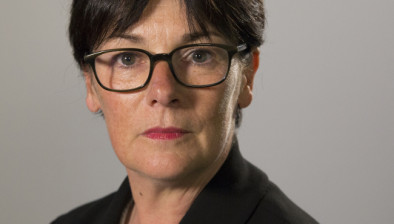Housing staff to help tackle domestic abuse in West Dunbartonshire
 West Dunbartonshire Council has become the first social landlord in Scotland to introduce a zero tolerance policy on domestic abuse within its properties.
West Dunbartonshire Council has become the first social landlord in Scotland to introduce a zero tolerance policy on domestic abuse within its properties.
The local authority has introduced measures which will ensure victims have immediate access to practical help and specialist legal assistance and support following any incident of domestic abuse.
In addition it will use the full scope of Anti-Social Behaviour powers in conjunction with Housing and Matrimonial Homes Legislation to ensure victims can remain at home, whilst the perpetrator will be legally removed, and prevented from returning.
The council is acting in response to figures which highlight West Dunbartonshire as having the highest incidences of domestic abuse per head of the population in Scotland.
The ‘No Home for Domestic Abuse’ campaign will protect victims and their families by introducing a presumption that all tenancies for couples are in joint names. If an incident of domestic abuse occurs, the victim will legally be entitled to remain in the home.
The council will also take a tough stance on tenants found guilty of committing domestic abuse by offering them only short-term tenancies and ensuring the property is at a distance from the victim.
Housing staff will partner with Police, Courts and Criminal Justice teams to coordinate swift action against the most serious offenders.
Work will also take place with partners including West Dunbartonshire Health and Social Care Partnership (WDHSCP), Police Scotland, and domestic abuse agencies to implement the new measures and send a clear message that domestic abuse will not be tolerated in any household in West Dunbartonshire.
Councillor Diane Docherty, convener of housing and communities, said: “We have strong partnerships in West Dunbartonshire with a common goal of helping residents who are living with domestic abuse and encouraging, supporting and protecting them so that they can have the courage to report incidents. We know domestic abuse is a significant issue for our communities and are all too well aware of the detrimental impact it has on both adult victims and children.
“We need to take radical action to make an impact and that is why we will not only be working with our Police Scotland colleagues and the courts to use the power of the law but also applying housing legislation in order to address this problem.
“We would encourage anyone who needs help or support to contact one of the many agencies across West Dunbartonshire. We understand the significant challenges we face to realistically achieve a reduction in domestic abuse and we would call on our residents and our communities to work with us and help us eradicate it from West Dunbartonshire.”
Cllr Docherty added: “It’s unreasonable, unacceptable and unjust that victims of domestic abuse can be forced to leave their homes while the perpetrator remains there. We are determined as a local authority to do whatever we can to ensure victims of this kind of crime can safely remain in their homes while the offenders are kept away.”
Figures from Police Scotland show 1,395 recorded incidents of domestic abuse were reported in West Dunbartonshire last year and 186 households presented to the council as homeless. One of the key strands of the campaign will, in cases where offenders are given bail, see courts asked to make it a condition that they are not bailed to the matrimonial or shared home. The council will also provide practical assistance to change locks and install additional security measures, in addition to facilitating access to specialist legal assistance to ensure victims are empowered to exercise their right to safely remain at home.
Councillor Caroline McAllister, the council’s violence against women champion and spokesperson for action on domestic abuse, said: “This campaign will put the Council and our partners in a stronger position to more robustly tackle this issue in West Dunbartonshire. It is wrong for victims of domestic abuse to have to flee their home which only adds to their stress. We want to reassure victims and their families they can stay in their homes and inform them where they can get the help and support locally.”
Last week the Chartered Institute of Housing (CIH) launched its own four-step pledge which housing organisations can make to support people who live and work in housing who are experiencing domestic abuse.









